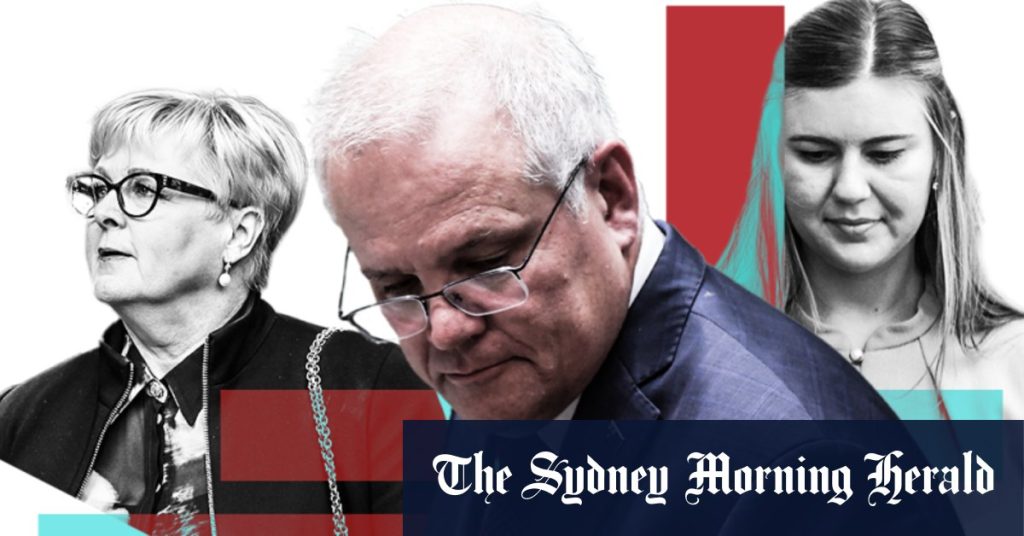In a defamation trial between former staffer Brittany Higgins and West Australian Senator Linda Reynolds, former prime minister Scott Morrison vigorously defended Reynolds’ handling of the rape allegation. He dismissed claims of a political cover-up and placed blame on the parliamentary process for failing Higgins. Morrison, testifying via videolink, discussed the aftermath of Higgins’ interview on The Project and described the aggressive questioning she faced in parliament and by the media. He acknowledged that the broadcast was the first he heard of the alleged rape in Reynolds’ ministerial suite and expressed disappointment that Reynolds had not informed him earlier. Despite this, Morrison understood Reynolds’ difficult position in balancing government obligations with maintaining confidence with Higgins.
Morrison emphasized that his decision to order an inquiry into workplace safety at parliament was motivated by the need to ensure a safe work environment, rather than by media attention. He denied that scrutiny influenced his decision to replace Reynolds as defence minister after she referred to Higgins as a “lying cow” while watching The Project interview. Reynolds clarified in court that she did not intend to disbelieve the rape allegation with that comment. Morrison defended Reynolds, stating that her use of inappropriate language was out of character and that she apologized for it. He insisted that Reynolds’ performance as defence minister was not affected by this incident and that his decision to make a change in ministerial arrangements was solely due to Reynolds suffering severe injury from the attacks she endured.
Morrison’s testimony shed light on the events following Higgins’ rape allegation, pointing to the challenges faced by both Reynolds and Higgins in navigating the aftermath. He highlighted the importance of maintaining a safe work environment and addressing workplace safety concerns in parliament. Despite the media attention and criticism surrounding the handling of the case, Morrison maintained that his decisions were guided by a commitment to upholding the integrity of the government and ensuring accountability. His defense of Reynolds and explanation of the circumstances surrounding her comments on Higgins underscored the complexities of dealing with such sensitive and high-profile cases within the political sphere.
The defamation trial between Reynolds and Higgins has brought to light the complexities of handling rape allegations and workplace safety issues in a political environment. Morrison’s testimony provided insights into the decision-making processes and considerations that were taken into account in responding to the allegations. By emphasizing the importance of workplace safety and addressing the challenges faced by both Higgins and Reynolds, Morrison sought to clarify his role in addressing the matter and ensuring accountability. The trial continues to raise questions about transparency, accountability, and the handling of sensitive cases within the political sphere.
Overall, Morrison’s defense of Reynolds and his explanation of the events following Higgins’ rape allegation reflect the complexities and challenges faced in such cases. His testimony shed light on the decision-making processes and considerations involved in responding to sensitive issues within the political sphere. The defamation trial highlights the need for transparency, accountability, and proper procedures in handling cases of sexual assault and workplace safety concerns. As the trial continues, it will be crucial to address the shortcomings in the parliamentary process and work towards creating a safer and more supportive environment for victims of assault.













